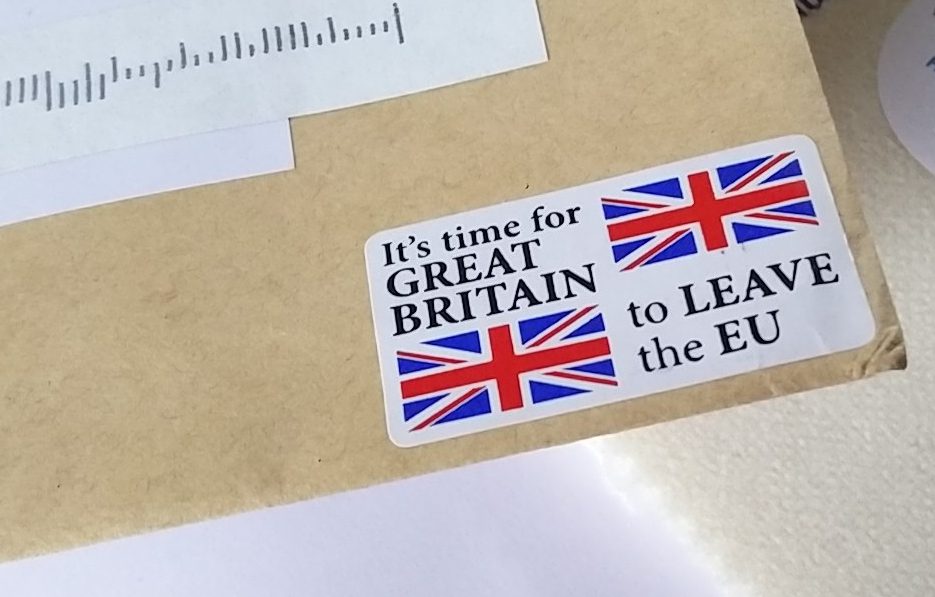Good evening! We want to update you on a few things.
The Wovember Petition
First and foremost, we have begun a process for officially submitting the Wovember petition to the European Parliament with a supporting paragraph asking that, in light of the 997 signatures we have collected here, we feel that the confusing EU labelling legislation Regulations for textile and fibre names should be revised.
EU labelling legislation
RegNo. 1007/2011
Textile Fibre Names & Related Labelling
Regulation (EU) No 1007/2011 of the European Parliament and of the Council of 27 September 2011 on textile fibre names and related labelling and marking of the fibre composition of textile products and repealing Council Directive 73/44/EEC and Directives 96/73/EC and 2008/121/EC of the European Parliament and of the Council Text with EEA relevanceWebsite Link: http://eur-lex.europa.eu/legal-content/en/TXT/?uri=CELEX%3A32011R1007
In particular, we want the European Parliament to revise this paragraph of the legislation:
(Article 8 and Annex III of the EU Regulation)
“The fibre name ‘wool’ can be used to describe either fibre obtained from sheep’s or lambs’ fleeces or a mixture of such fibres and certain fine animal hairs (viz alpaca, llama, camel, cashmere, mohair, angora, vicuna, yak, guanaco, beaver, otter)”

When we established the Wovember petition in 2011, our idea was to build a case against the mis-description of woollen goods and the misuse of the term wool – exactly as it says – but when John Arbon wrote a piece specifically about EU legislation, we realised that perhaps the best place to take that petition with all your signatures is to the European Parliament.
We await news of whether or not the petition has been accepted, and will keep you updated.
Brexit
One of the things that came up in the course of John Arbon writing that piece is Brexit, and whether the UK leaving the EU will make it easier for the UK wool industry to create clearer legislation for woollen textiles. Wovember wants to know: will there be other benefits to UK farmers and wool workers from exiting the EU? And what will the UK’s exit from the EU mean for wool in other EU countries?
For myself, (Felicity Ford) working on the EU sheep breed series for Wovember this year has consolidated my personal opinion that we are better off in the EU than out of it. Some of the most heartening things I have found are reports about cross-border and cross-cultural projects and EU-funded initiatives to save rare sheep breeds. Reading about the sheep and wool country in each EU country has inspired me deeply in thinking about how we can correspond in wool across cultures; learn from one another; share skills and develop new projects together. However, I understand that I do not bring a farming or industry perspective to Brexit and that many of my fellow countryfolk do not share my personal views.
Indeed, several months before the momentous referendum, I wrote to a company in the North of England to request some samples of their woollen fabrics. The samples arrived in the post in an envelope with a sticker on it:

I have thought a lot about that sticker. I wrote to enquire about it and still await a response. In the meantime, I wanted to share my email here; to use it to begin a respectful conversation about what Brexit means for wool:
Dear XXX,
Thank you for sending me some samples of your wool fabrics; they are fantastic though sadly not appropriate for my current project. I shall keep them on file for future purposes.
I am writing today about something else.
When your fabric samples arrived with me, there was a political sticker adhered to the envelope saying “It’s time for GREAT BRITAIN to LEAVE the EU”. I have thought a lot about that sticker; I am extremely interested in why that issue matters to you, and would love to hear why your company felt sufficiently strongly to have proselytized this position in the lead up to the EU referendum.
The reason I’m interested is that I co-run a website called WOVEMBER which is all about wool – you can see it at wovember.com and our archives at wovember.wordpress.com.
In our work we aim to educate and inform consumers about textiles and to campaign against misuses of the words ‘wool’ ‘woolly’ and ‘woollen’ in online descriptions of garments that are, in fact, made of acrylic. As well as this campaign work, we aim to celebrate the distinctive qualities of real wool, and the labour that goes into producing it. This year on our website we are focusing on the politics of wool and, this being the year of BREXIT and the US Election, we want to include some content that touches on how these large political shifts will impact the global wool trade.
Would you be willing to explain in an article for our website why, in your opinion, “It’s time for GREAT BRITAIN to LEAVE the EU” and what benefits you see to trade – particularly the wool trade – resulting from our Brexit?
I would love to be able to share such a perspective on our website with other fans of wool as I feel that many, like me, who voted to remain, are looking for the silver lining right now. I’m keen to find ways of moving forward together and of understanding the different motives for a leave vote that I still don’t understand, and every time I look at your envelope containing my very favourite textile – WOOL – I feel that an explanation for your sticker might be a positive place to begin…
I’m very much looking forward to reading your response,
Warm Regards,
Felicity Ford.
Brexit is an emotive and difficult topic with strong feelings on both sides but for this year’s theme – THE POLITICS OF WOOL – it feels impossible to ignore. We’d like to know what you think Brexit means for wool, and will moderate comments carefully, using a policy based on that of The Guardian. We want to hear from all of you but please note: this is not an opportunity to vent in general about Brexit from any perspective, but to collectively explore what Brexit means specifically for wool and for the wool industry. Trolling, hate speech and personal attacks in any form will be deleted. If you are not sure what is/isn’t considered offensive, read this article.
